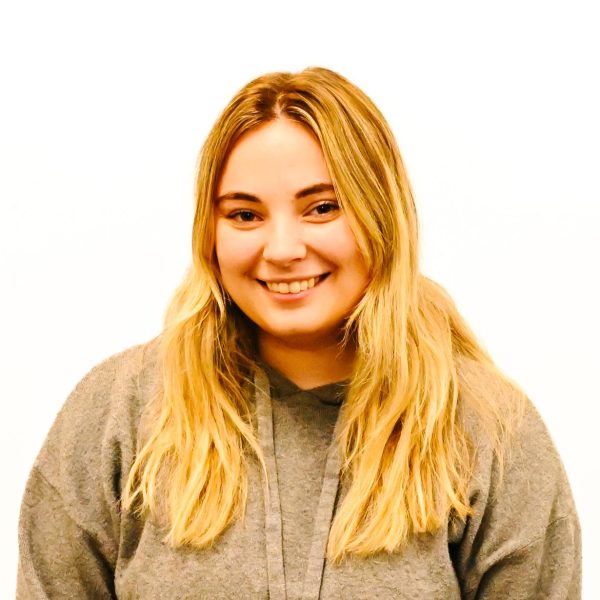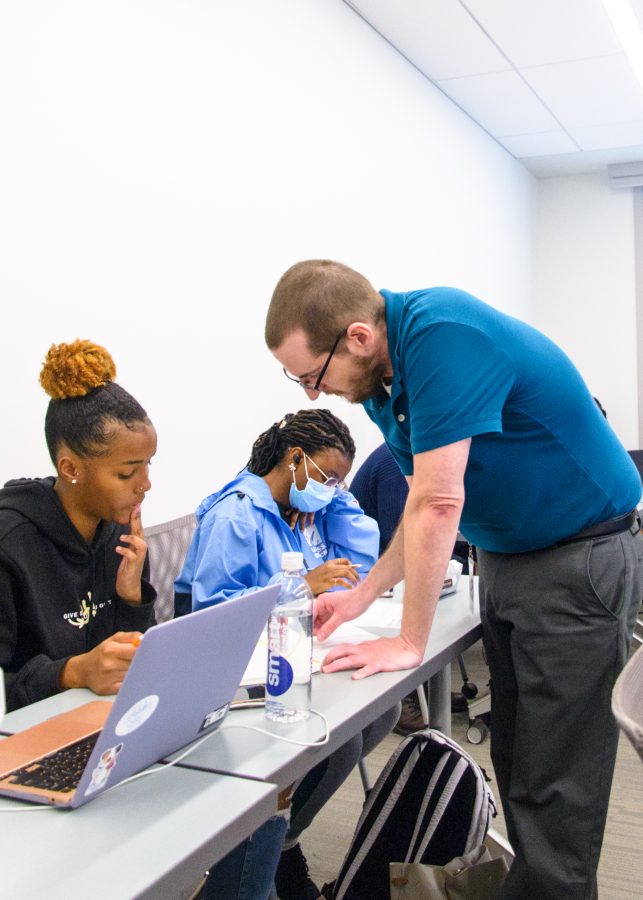As a 26-year-old undergraduate, I know that it can seem like a bit of an awkward age to be enrolled at a traditional university without a graduate degree. For me, the fact that I am older than a majority of other undergraduates, but younger than students making a late-in-life career change, can certainly feel a bit isolating—like I don’t quite fit in anywhere. When I first came to UMass Boston, I would constantly express to myself and others a sort of mental story where I was “too old” to be in college. It was always half-jokingly—I did recognize that there were other, much older students in my classes—but at the same time, I really felt like I had “wasted” a lot of my late-teenage years through to my early 20s.
Way back in 2014, I had graduated high school without a clue as to what I wanted to do with my life. So, instead of going off to a traditional four year college or embarking on some trade apprenticeship, I ended up commuting five days a week to Middlesex Community College in Bedford, vacillating from major to major and taking extended breaks from school for about six years. It wasn’t until the fall of 2020 that I decided to return to school for good and began taking my academic career very seriously. And yes, that was very unfortunate timing: The COVID-19 shutdown began halfway through the first semester I decided to put 100 percent of my effort into!
Now, there is a larger point to this story, and it’s not to speak any ill of MCC—quite the contrary, in fact. I’m sure that quite a few of you have transferred from either their Bedford or their Lowell campus, or online, and can attest to the quality of the experience. Their “Mass Transfer” program, which allows you to easily and near-seamlessly transfer to any Massachusetts state college or university, is an absolute life saver and is the reason why I’m here at UMass Boston—again, unfortunate timing due to the campus construction, but what are you going to do?
The point I want to make is that I took an untraditional, inefficient and lengthy route to UMass Boston, and I know that there are many students here that have wandered a very similar path. But I’m here to tell you that, if you are in a similar situation, don’t allow yourself to think like I did. You are not “too old,” you are not alone, and you are, in fact, highly valued by the administration and professors alike!
Let’s quickly look at some numbers. Student Equity, Access, and Success claims that, even back in 2008, “42 percent of freshmen were age 20 or older,” and that “73 percent of seniors were age 24 or older.” Today, College Factual claims that just under 39 percent of students fall into the “traditional college student” category of 18-21, and that UMass Boston has a higher-than-average age diversity in its student population. In fact, their metrics show that students aged 22-24 slightly outnumber students ages 18-19, with those 25-29—like me—not far behind. Students 30 and over even make up about 13 percent of the total student population. Clearly, UMass Boston is the place for you if you are an older student.
Personally, I have found a few good friends around my age and frequently have great conversations with younger and much older students—even as someone who is fairly introverted. I used to have breakfast every other day with a 30-year-old woman studying to be a cantor, a mother of three with a huge personality and a heck of a life story, and a 20-year-old political science major who I’m now in a band with. I even met a woman in her 40s or 50s from Ireland who was majoring in English, hoping to start a career as a writer; how cool is that? UMass Boston is just awesome in that way.
Anecdotally, I have heard from professors that they really enjoy having older students in their class as well. They seem to believe that we are particularly dedicated our work and bring interesting life experiences into discussions. There seems to be more of a mixed response on social media—some professors find that much older students can sometimes be rigid in their thinking, for example—but there are still plenty of professors who say they love their older students. Clearly, all it takes for you to be in your professor’s good graces is to work hard and participate in class, and judging by UMass Boston’s age statistics, your professors are certainly used to an older demographic.
If you do some Googling, you’ll also find that there are plenty of professions that people often enter into late in life, usually as a career change. There are lots of doctors, lawyers, urban planners and more who graduated with their degree at 30, 40 and even 50 years old. Last semester, I worked with a veteran—who actually used to produce comics for The Mass Media—who is going back to school for anthropology. I thought that was super cool, especially since I almost majored in anthropology myself. In fact, in certain situations, it may even be smarter to go to school later, from a financial standpoint. Veterans may be able to fund their education through the GI Bill, and there are scholarships that are specifically awarded to people making a career change, for example. In a practical sense, there is no such thing as “too late.”
So please, if you’re an older student, don’t worry: UMass Boston is the place for you! Don’t be afraid to talk to your classmates and join them for breakfast or lunch. Don’t be afraid to share your life experience—when relevant—in class discussions. Join some clubs and organizations, attend some events and put yourself out there. This place is for you. You belong here!
You’re never too old to get a degree!
Professor Cullipher takes time after his chemistry class to help a student with questions in University Hall. Photo by Olivia Reid / Mass Media Staff
Contributors
James Cerone, Opinions Editor

Olivia Reid, Photo Editor
Olivia Reid (she/her) is a senior majoring in communications. One of her favorite experiences was covering Taylor Swift’s The Eras Tour and getting to professionally photograph the show.

